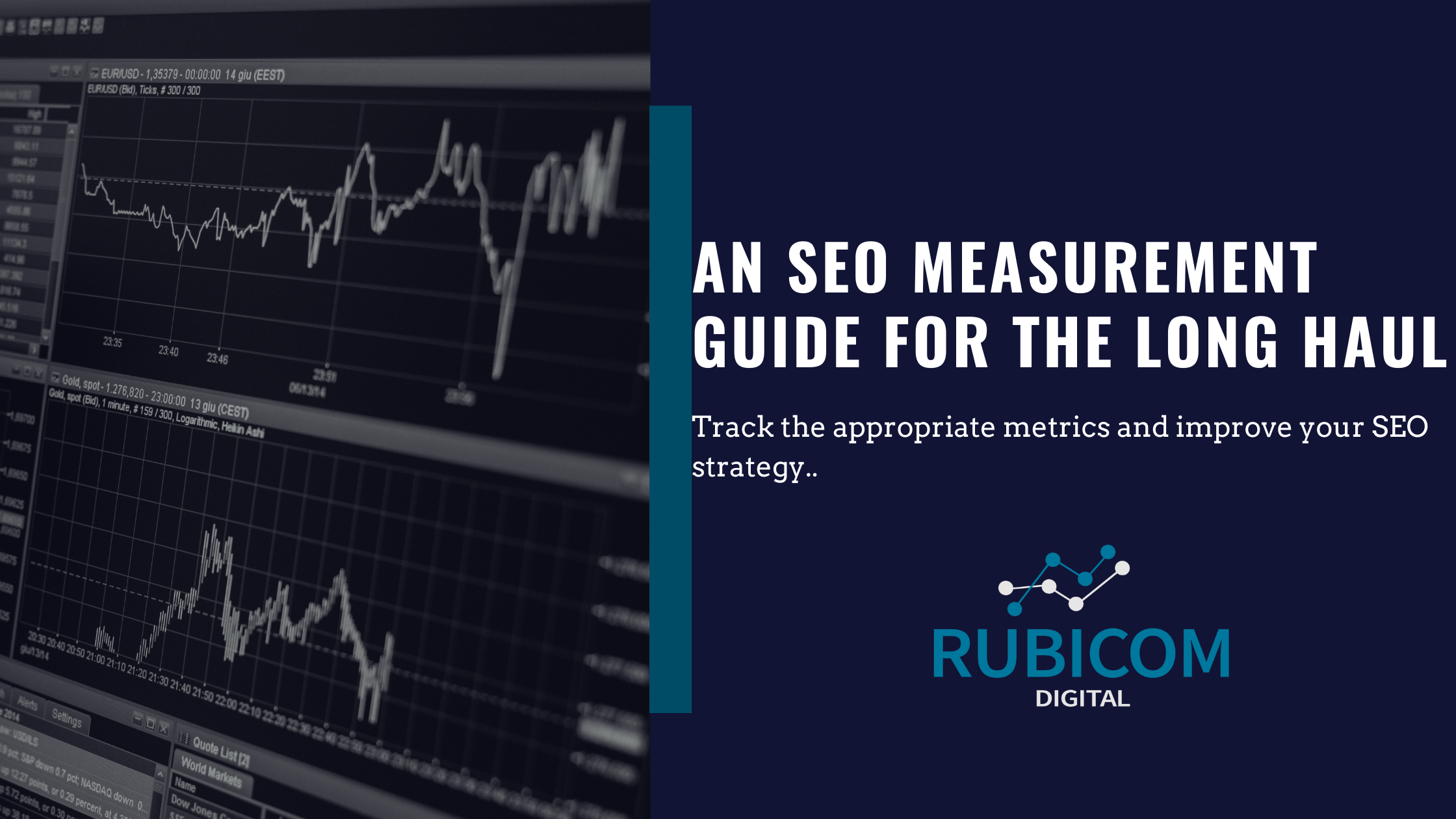SEO Measurement Guide for the Long Haul
For those who are invested in SEO and understand the importance of the long term strategy behind it, SEO measurement is the most critical aspect to be sure that your organization is progressing.
Because SEO is such a long-game, you don’t just immediately implement it and see the traffic and conversions that you’re looking for; But there are ways to track your progress and provide peace of mind that even if you’re not seeing immediate results, you’re still setting yourself up for long-term success.
Whether you’re internally looking to track your SEO progress, or looking to provide data points to clients that you’re not just wasting their SEO investment dollars, this post will discuss a few aspects and tools that you can use to measure the impact of your SEO strategy, and key metrics to continually build on.
Local SEO
Local SEO is the first thing that should be tackled in your overall strategy. Mainly, if your target audience in your own geographical area can’t find you, then how will anyone else?
Start by leveraging Google My Business (GMB) to get your profile created and optimized. Some important factors to consider are:
- Business address
- Photos of your business, logo, & team
- Services offered
- Hours of Operations
- Link your website
Once created, GMB will offer you a link that you can easily share with your customers. Ask them to write a review about their experience working with you, and continue to do the same for new customers as they come in.
Search engines, believe it or not, know whether the reviews are genuine and it should help you rank better as you begin to build a community of happy customers.
Now for local SEO measurement, track metrics such as:
- Number of reviews received
- Number of post views
- How many people asked for directions?
- Did you receive calls from your GMB page?
As your local SEO presence starts to increase, you’ll surely see the numbers on the metrics above increase as well.
Overall SEO
Although this next section will discuss overall SEO, local SEO greatly ties into it. We’re going to use three different tools for this section; Google Analytics, Google Search Console, & a website auditing tool.
Google Analytics
Google Analytics will predominantly be used to track the traffic on your website; In this scenario, organic traffic.
As we continue to strive for better SEO measurement, a key metric that we’ll track is the number of organic searches over time. Ultimately the numbers will increase and tell you that your website is becoming more visible.
Google Search Console
Google Search Console is the most critical tool for SEO measurement as it tells us how users navigate to our website in the first place. Read this article to better understand the relationship between Analytics and Search Console.
Key Metrics that Search Console allows you to measure include:
- Total Clicks: Number of times your page is clicked on after being found within search engines
- Total Impressions: Number of times your url shows up after a search within search engine
When searching for ‘SEO audit tools’, we see the impression below:
- Average CTR: The click through rate that compares the numbers of clicks actually received in correlation with the number of impressions.
- Average Position: The actual position ranking within search engines that you show up for after a specific search word/term
You can expect positions 1-10 to be page 1, 2-20 to be page 2, and so on and so forth.
- Search Queries: The search queries that your site is being found by, and corresponding data from all of the datasets mentioned above.
Ultimately, these datasets should improve as you continue to develop and execute on your SEO strategy. Both tools allow you to pull reporting that can be presented to prospective customers and current account sets as you look to track your progress.
Finally, ensure that you’ve developed a sitemap from your website and have submitted it to Google Search Console. This makes it easier for bots to crawl your website, thus making it easier to organize and rank your pages within search engines.
Website Auditing Tool
Now that we’ve gone through implementing Local SEO, tracking how users get to your site, and what your users do when they get to your site, it’s time to drive the strategy behind SEO implementation.
Website auditing tools give you a full picture of your website that breaks down everything from technical errors and enhancements to SEO and competitor analysis. Below are some of our top website auditing tools:
- SEMrush
- Moz
- Ahrefs
- Mangools
There’s two main drivers in terms of this discussion that make sense for a website auditing tool:
- Provide a unified dashboard that can tie multiple datasets together
Earlier we touched on setting up Google My Business, Google Analytics, & Google Search Console; All of this data can be tied into your website auditing tool and combined into a unified report that enhances data visualisations.
The data can also be imported into clean reporting that can be automated and sent out at your desired schedule.
The top aspects that help you drive SEO strategy within your website auditing tool are:
- Keyword research: after compiling a list of keywords that you believe your target audience is searching for, plug them into the keyword research tool to help you determine search volume and keyword difficulty. Ideally, you’re looking for a mix of higher average monthly search volume, and lower competition so that it’s easier for you to rank for that keyword/keyphrase.
- Competitor analysis: To further drive strategy, compile a list of your top 3-5 competitors and import them into what’s called the ‘Keyword gap’. The auditing tool will then show you which terms your competition is going after, and you can make the determination of whether or not you should try taking some of their organic traffic by going after those keywords as well.
- Backlink audit: the single biggest piece of enhancing SEO is acquiring quality backlinks. Quality backlinks come from higher authority websites and let search engines know that you’ve established expertise in your field especially because higher quality brands are willing to link to your website. The backlink audit will show you where your backlinks are coming from so that you can remove low quality links, as well as give you ideas of websites that you should consider reaching out to and ask for a backlink from.
- Overall website health: Algorithms continuously reward websites that provide a great user experience to their target audience. The overall site health will let you know if you have any broken links, slow pages, or content that’s not formatted correctly within your pages so that the issue(s) can be addressed ASAP. Nothing deters users more than when a link is broken or the page doesn’t load quickly.
- Ranking keywords: understanding which keywords you’re ranking for (this complements Google Search Console) is important and the tool enables you to track your keywords as well as position of those keywords within search engines. As you acquire quality backlinks for your quality content, you’ll watch your position tracking numbers increase as you move your way up the chain and closer to page 1.
Ultimately, all of these metrics can be imported into clean reporting and automated to be delivered so that they’re continuously tracked and top of mind. The auditing software will even have a lot of these reports already built out for you so all that has to be done is the data population rather than report building.
Integration for Transparency
All of the tools discussed should integrate with one another to provide greater transparency as you look to make better leverage SEO measurement and drive strategy.
There are so many more datasets that can be analyzed, but the metrics discussed today should provide you with the bulk of information you need for better data visualization and decision making.
Whether you’re looking to analyze this data, or provide it to clients that you’re helping, these tools and integrations will have you well on your way.
“What gets measured gets improved.” – Peter Drucker
Let us know how these metrics worked for you and what you’re doing to implement these practices.

Gary McConnell Co-founded Rubicom Digital in 2019 with a goal of providing digital marketing consulting services in the B2B space.
Gary continues to serve as the Marketing Director of a Data Center-focused IT Provider, VirtuIT Systems.


1 thought on “An SEO Measurement Guide for the Long Haul”
Comments are closed.